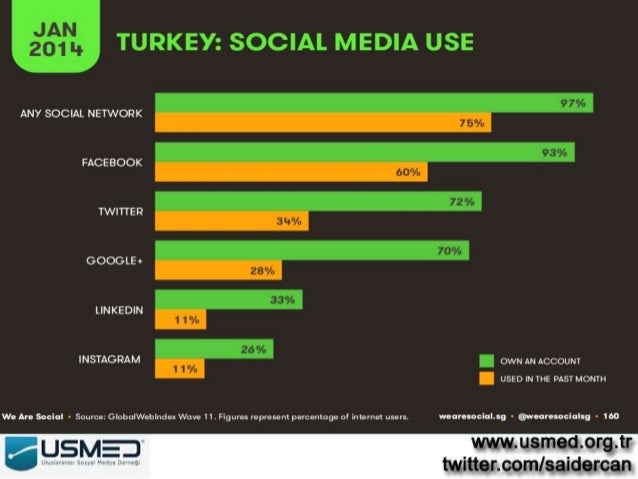Social media is
usually considered as the virtual platforms in which social interaction is
performed. It includes web 2.0 and
mobile based technologies and applications such as Facebook, YouTube,
MySpace, LinkedIn, Twitter, Wikipedia and blogs. Internet users share views, information,
interests, comments which they create or which is created by others, through
these virtual communities and technologies. Social media differs from traditional
communication means which provide one-way street communication, and facilitate
multilateral communication. Individuals and communities have chance to send
feedback and share the content which they received. People create, review and share the content
together.
Social media also
has become a virtual communication platform for people to express their
opinions on public policies. In this sense, social media plays a significant
and constructive role in public policy making and implementing process by
providing a cheap, easy, and fast interaction opportunity among the users and
public institutions. Moreover, social media has some special features including
participation, openness, and dialog which are very crucial for democratic
governments. E-participation through this channel will bring more transparency
in public sector.
Social media
usage in public sector first came up with top leaders’ participation in social
networks in many countries. Presidents, prime ministers, and politicians opened
accounts in Facebook and Twitter in order to communicate their constituents,
especially to conduct their political campaigns. In Turkey former president
Abdullah Gul became one of the pioneers among top officials. Then government
agencies followed leaders, and began to use social networks. However, we
cannot say public sector in Turkey fully has adapted and get involved in social
networks yet. Some ministries of Turkish government still do not have an
organizational Facebook page or official Twitter account.
When we look at social network participation rates among the
internet users in Turkey, social media can be an efficient platform for a
beneficial interaction between the government and the governed. According to
2014 survey of Turkish Statistical Institute (TUIK), internet usage in
Turkey has increased from 48.9% to 53.8% since 2013. There are approximately 37
billion internet subscriber in Turkey. Although internet usage rate is low
respectively, social networks became the most preferred activity with 78.8%
rate out of all internet users in the first quarter of this year.
Another report, Global Digital Statistics 2014 from ‘We are social’, introduces that
Facebook takes first place among social networks chosen by Turkish internet
users. 93% of internet users have a Facebook account while 72% of them have
Twitter account. TUIK survey also explains that over the half of internet users
went online to use the e-government services, especially to get information
from web sites. Another point that pave the way for a better usage of social
media in public sector is the fact that Turkey has 92% mobile penetration, and
approximately 36% mobile internet usage of total population.

How public sector increase and transform above mentioned
potential into a constructive contribution is the core question for Turkey. Even
though internet penetration is not very high in Turkey, it increases gradually
in every year. To increase the interaction with public in social networks,
government agencies can use push, pull and networking strategies (Mergel,
2010). In this regard, public institutions can utilize social interaction
channels to provide information about their duties and works, and get feedback
from citizens. Also citizens can be
encouraged to participate in decision making process in public sector. Government
institutions should plan and create their own policies and strategies on how to
enhance the benefits from social networks. These policies and strategies should
also include the involvement of public workers, formation of privacy and usage
rules, and safety issue. Also the
feedback from social media channels should be evaluated and processed in policy
making and implementation by experts and practitioners. Guidelines, privacy and
safety conditions are important to build a reliable relationship through these
social medium. Otherwise, disinformation from fake accounts, politicization of
issues or violation of laws may transform a fruitful network into an
unproductive, useless and dysfunctional channel.
Social networks has a dynamic nature. New technologies,
communication tools, and interaction culture has developed perpetually in this
dynamism. Thus, in order to adapt a constantly changing medium, public sector
should also transform itself in an interactive and dynamic way. Government
agencies should began to plan their strategies related to utilization of social
networks in order to promote participation, transparency and collaboration.
No comments:
Post a Comment